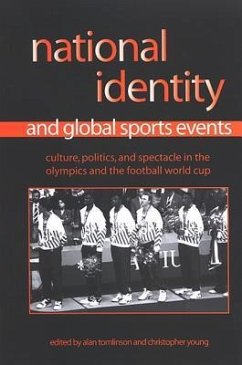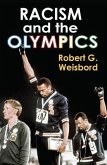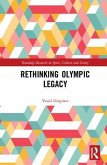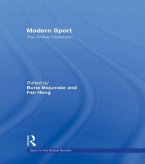Explains why cities dig deep in their pockets to host the Olympics and countries breed teams for success on the world soccer stage. National Identity and Global Sports Events looks at the significance of international sporting events and why they generate enormous audiences worldwide. Focusing on the Olympic Games and the men's football (soccer) World Cup, the contributors examine the political, cultural, economic, and ideological influences that frame these events. Selected case studies include the 1936 Nazi Olympics in Berlin, the 1934 World Cup Finals in Italy, the unique case of the 1972 Munich Games, the transformative 1984 Games in Los Angeles, and the 2002 Asian World Cup Finals, among others. The case studies show how the Olympics and the World Cup Finals provide a basis for the articulation of entrenched and dominant political ideologies, encourage persisting senses of national identity, and act as barometers for the changing ideological climate of the modern and increasingly globalized contemporary world. Through rigorous scholarly analyses, the book's contributors help to illuminate the increasing significance of large-scale sporting events on the international stage. Contributors include Eduardo Archetti, Claire Brewster, Keith Brewster, Miquel de Moragas, Robert Edelman, Robert S. C. Gordon, Allen Guttmann, Chris Kennett, John London, John J. MacAloon, Tony Mason, David Rowe, Deborah Stevenson, Alan Tomlinson, Soon-Hee Whang, and Christopher Young.
Bitte wählen Sie Ihr Anliegen aus.
Rechnungen
Retourenschein anfordern
Bestellstatus
Storno








